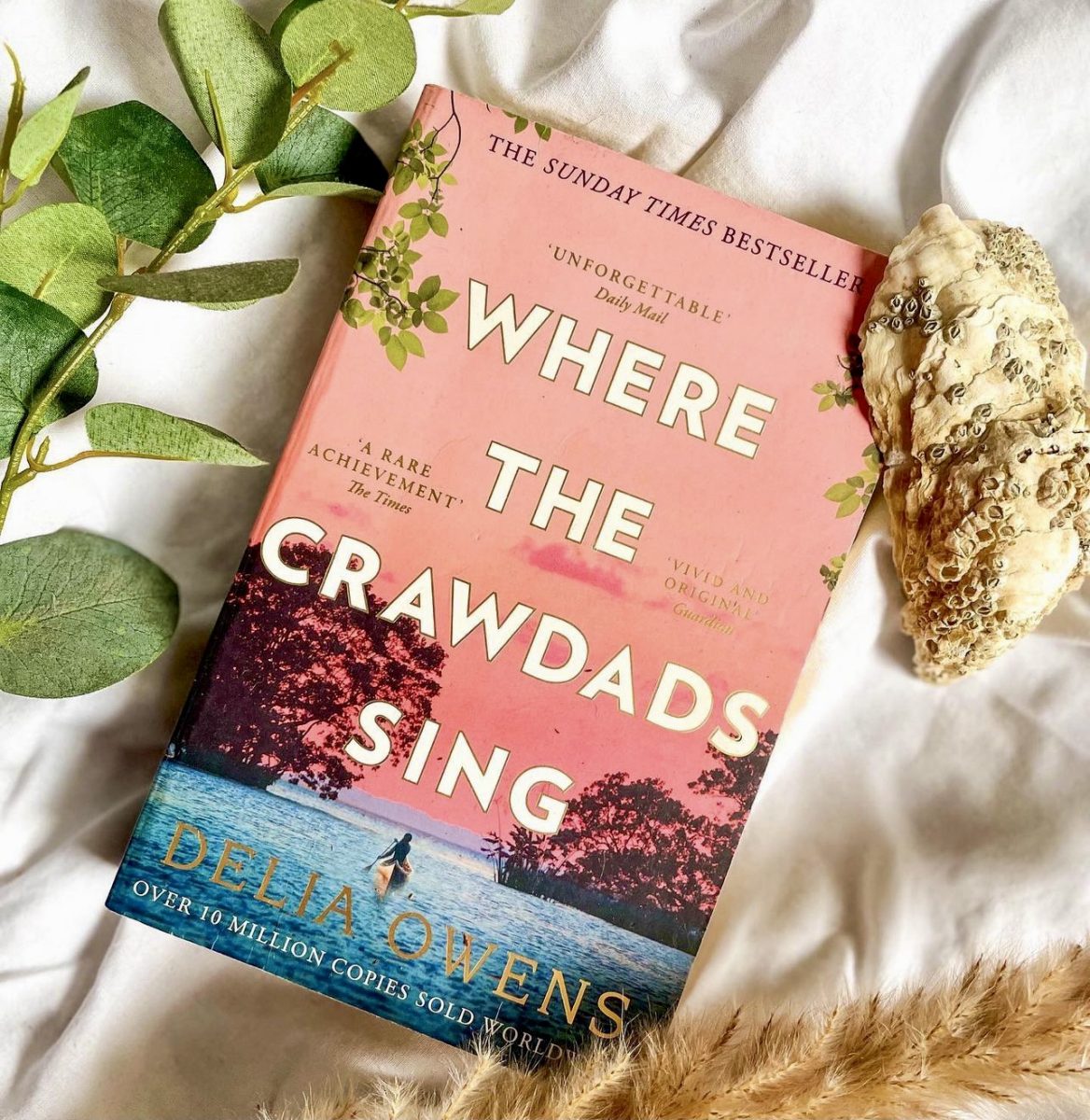Delia Owens immerses readers into the raw, deep wilderness of North Carolina, forcing them to feel self-reliant and shunned by society. And for that, we thank her.
Inspired by Owens’ 2018 New York Times Best Seller, “Where the Crawdads Sing,” American singer-songwriter Taylor Swift dedicated her 2022 single “Carolina” to the movie adaptation. “Carolina pines / Won’t you cover me? Hide me like robes down the back road / Muddy these webs we weave,” sang Swift. The folky tune and lyrics mimic the desolate and wild scenery of the romance and murder mystery, which encapsulates the upbringing of the protagonist, Danielle “Kya” Clark. Kya is better known to the townspeople, and to the marsh that she calls home, as the “marsh girl.”
The story takes place in the 1950s, throwing readers into a place and time that shows deep themes of social prejudice and rural lifestyles unfamiliar to many today. Abandoned by her family as a child, readers watch as a little girl is forced to learn how to survive and make nature her refuge and nurturer. Failed by her family and townspeople, who shunned her and ran her out of town on her first day of school, we watch as Kya battles loneliness in the desolate and substantial domain of the marsh.
The experiences that Kya goes through alone are unfathomable to the average reader. Sitting in the comfort of one’s campus dorm, surrounded by books and friends, supported by family and laying in a heated room surrounded by quilted blankets, it is unimaginable to put oneself into the position of Kya. Kya, who wakes at dawn to dig for mussels to sell for food. Kya, who hides in her hut from passersby hurling rocks and insults at her door. Kya, who falls asleep at night with the knowledge that besides the marsh critters and the sounds of billowing trees and their branches, she is entirely and utterly alone. Yet, Owens brings us there.
The marsh becomes more than just a backdrop to her story; it becomes a character in itself, reflecting the complexities of human nature and the interconnectedness between humans and the environment. Owens perfectly details a woman’s innate motherly connection to the natural world, further deepening the themes of girlhood and the appreciation of the natural world.
Kya finds solace and companionship in the marsh and its diverse wildlife, influenced by Owens’ experience as a zoologist. Like Kya, Owens grew up in the solitary South, spending most of her childhood in the “true wilderness,” as she puts it. Her work reflects the decades she spent in the deserts of Botswana and Zambia, studying the wildlife and environment.
“Where the Crawdads Sing” is an ode to the human-nature bond, written in a way many other books have attempted yet failed to do. She opens her novel: “Marsh is a space of light, where grass grows in water, and water flows into the sky.”
Motherhood is another complex theme throughout the novel. Owens’ mother, who inspired young Owens to treat nature as her companion, coined the novel’s title with a phrase she would tell young Owens growing up: “Go way out yonder where the crawdads sing.”
Ran out of school on her first day, Kya’s character symbolizes perseverance and self-reliance. As Kya transitions from girlhood to womanhood, the harassment from society grows. Townspeople call her “dirty,” “missing link” and “marsh trash.”
Owens does a commendable job of portraying the intolerance of the mid-20th century. The novel’s social dynamics between the sexes and races illustrate segregated America. The two central Black characters, a shopkeeper named Jumpin’ and his caring wife Mabel, represent the racial dynamics in the story. Stepping up to help raise Kya, however, fearing how the public may perceive their parental adoration for the abandoned girl, Jumpin’ and Kya’s bond is emphasized in their shared label as outsiders from the white town that shuns them.
Owens intertwines two timelines to describe both the isolations of a young girl and the societal battles of a young woman. The catalyst occurs in Kya’s womanhood when her ex-boyfriend, the popular, well-liked football quarterback, is found dead. All fingers immediately point to “marsh girl,” becoming the prime suspect in the town’s murder case and once again succumbing to the abuse of the locals. Kya’s former relationship with the murdered, Chase Walker, is one of the few romantic and sexual relationships that Kya was exposed to in her teen years. Along with Tate Walker, the only other human presence and friend in the marsh, Kya’s relationships portray the social complexities of a girl who grew up alone, with no parental or sibling figures to guide her.
By the end of 2019, “Where the Crawdads Sing” had sold more copies than any other fiction or nonfiction adult title. Actress and producer Reese Witherspoon promoted the book on her online book club, the Hello Sunshine Book Club, where she celebrates female authors. The attention it received led to Witherspoon making a movie adaptation in 2022.
Juxtaposing themes of loneliness, independence, self-discovery and appreciation of the natural world, Owens delivers an irresistible read that demands every bookworm’s attention.






































































































































































































